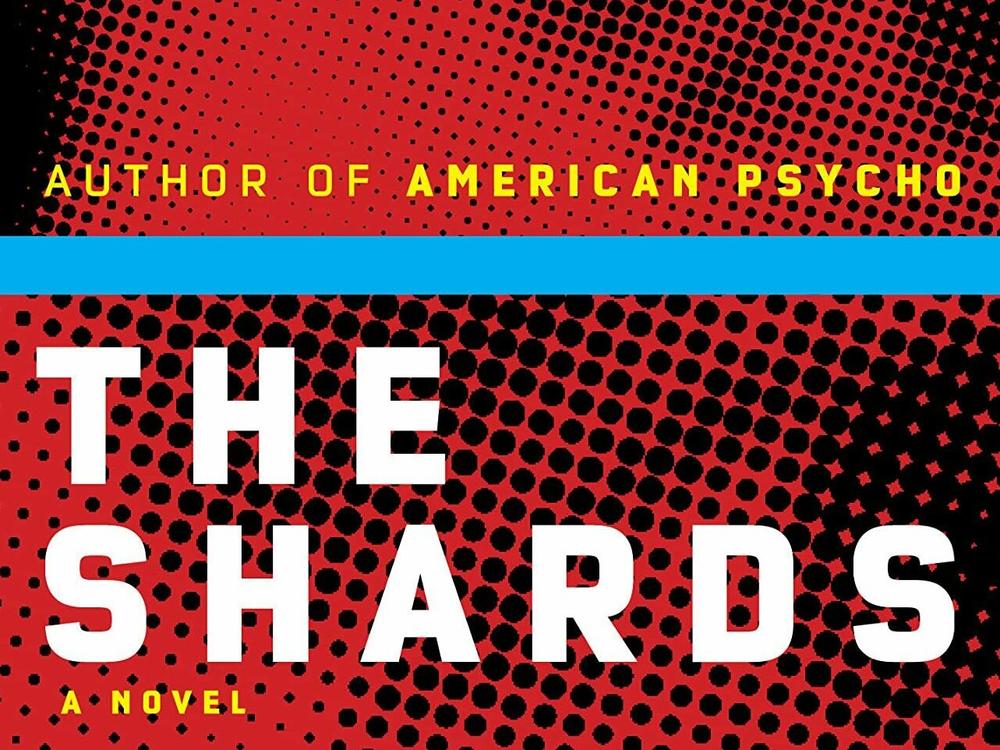Section Branding
Header Content
Bret Easton Ellis' first novel in more than a decade, 'The Shards,' is worth the wait
Primary Content
It's been a dozen years since Bret Easton Ellis published a novel. And his latest, The Shards, is a narrative that came to him in 1981 — more than four decades ago — when he was a 17-year-old high school senior.
Luckily, the novel is worth the wait. Hermetic, paranoid, sleek, dark — and with brief explosions of the sex and violence that have characterized Ellis' oeuvre — The Shards is a stark reminder that the American Psycho author is a genre unto himself.
Bret is a 17-year-old senior at Buckley, a prestigious L.A. prep school. He hangs out with the cool crowd, has an attractive girlfriend, lives mostly alone and in his own world in his rich parents' house, and drives a Mercedes 450SL. Bret's life is about parties, working on his first novel, secret sex with men, and dreaming of leaving L.A. behind while floating aimlessly through the life of the wealthy and popular in L.A.'s best neighborhoods.
However, that changes when a new student with a mysterious past arrives at Buckley. Robert Mallory, who Bret is sure he has seen before, is handsome, comfortable with himself, and extremely alluring — but he's also a bit strange and enigmatic. When Bret learns that Robert spent six months "in a mental institution," he becomes convinced the newcomer is hiding a terrible secret from Bret and his friends. While Bret's senior year rushes toward its inevitable end, he becomes obsessed with the Trawler — a serial killer who's kidnapping and brutally murdering young women in L.A. and who seems to be coming closer and closer to Bret and his friends. Bret struggles to cope with the mysterious death — or murder? — of one his lovers while also becoming entangled with his girlfriend's father and obsessing about Robert, whose narrative seems to be on a collision course with that of the Trawler.
The Shards, which comes in at a bit over 600 pages, is about a lot of things. More than one narrative, Ellis weaves in and out of multiple stories: Bret's relationships and secret homosexuality, his writing and possible work on a script for his girlfriend's father, the Trawler's vicious crimes, Robert Mallory's effect on Bret's group of friends, drug use, and more. Despite the multiplicity of intertwining narratives, Ellis masterfully keeps Bret at the center of everything and the narrator's voice, not to mention his growing paranoia, is more than enough to keep readers turning pages.
This is a novel that simultaneously occupies a few different spaces. Parts of it reads like a crime novel and others like a very dark, sexualized, drug-infused coming-of-age story. But there is also a lot of humor, a deep, scathing look at privilege, and a very personal exploration of the things that haunt us, the way distrust affects us, and how sex, growing up, jealousy, fear, and obsession can shape the life of someone at the cusp of their teenage years. Similarly, the story delves deep into what Bret sees as the performance of everyday life; the way everything is a narrative, a "pantomime," a "script." Lastly, and perhaps more noticeable than anything else, The Shards is a very personal work of metafiction in which Bret Easton Ellis shares not only a name with his narrator but also a novel (Less Than Zero), a plethora of identity markers and obsessions, and a school (the author photo used for this novel is from Ellis' 1982 yearbook from Buckley School).
And the metafiction doesn't end with the obvious similarities between Ellis his character. The novel is also very aware of itself, and the writing shows that. Perhaps the only element that isn't constantly enjoyable here is the endless detail — there are constant descriptions of places, the cars everyone drives, what they wear, full recollections of long conversations that go nowhere, the streets Bret drives through aimlessly, a mall, etc. Bret talks about the writing of his novel, explaining that it's "about me" but that it didn't have a story, "it didn't have a narrative exactly, there was just this drifting numb quality" that he was trying to perfect. And perfect he did. At another time, Bret's dissecting a song and finds it "too long," but also "an abstraction, poetry that could mean anything to anyone." And that, ultimately, is what The Shards is; this is Ellis' novel, but it's also a mirror that invites the reader to look at what makes them tick, a vessel full of meanings that readers will extract depending on who they are.
On the surface, The Shards is a relatively simple story about an obsessive young man learning to navigate the interstitial space between being a teenager and adulthood. However, it's also much more; this is a novel about obsession, the masks everyone wears as they go through life, and how isolation exacerbates paranoia — and one that could only have come from Bret Easton Ellis.
Gabino Iglesias is an author, book reviewer and professor living in Austin, Texas. Find him on Twitter at @Gabino_Iglesias.
Copyright 2023 NPR. To see more, visit https://www.npr.org.

